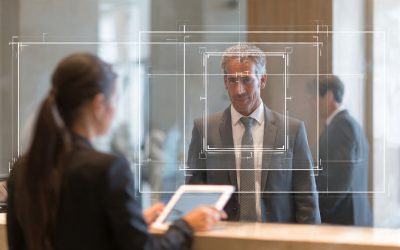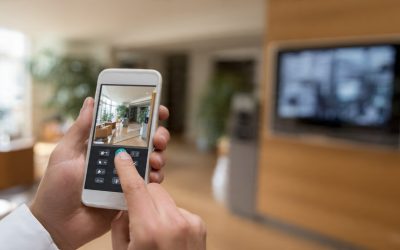Reducing False Alarms with Smart Alarm Monitoring Verification.
In an age where security is paramount, the significance of smart alarm monitoring verification cannot be overstated. This technology serves as a crucial line of defense against potential threats, ensuring that homes and businesses are safeguarded from intrusions. Smart alarm monitoring verification enhances traditional alarm systems by incorporating advanced technology that allows for real-time monitoring and verification of alarms.
This means that when an alarm is triggered, it is not merely a call to action; it is a signal that prompts immediate investigation, reducing the likelihood of false alarms and ensuring that genuine threats are addressed promptly. Moreover, the importance of smart alarm monitoring verification extends beyond mere protection. It fosters a sense of security and peace of mind for homeowners and business owners alike.
Knowing that their property is under constant surveillance and that any alarm will be verified before emergency services are dispatched allows individuals to feel more secure in their environments. This technology not only deters potential intruders but also builds trust in the security systems that protect our homes and businesses. Peace of mind is our priority.
Understanding the Impact of False Alarms on Emergency Services
False alarms pose a significant challenge to emergency services, diverting valuable resources away from genuine emergencies. When an alarm is triggered without a legitimate threat, it can lead to unnecessary dispatches of police, fire, or medical personnel. This not only strains the resources of these services but can also result in delayed responses to actual emergencies.
The impact of false alarms is felt across communities, as they can lead to increased response times and a decrease in overall public safety. Furthermore, the financial implications of false alarms are considerable. Emergency services often incur costs associated with responding to these false alarms, which can ultimately lead to increased taxes or fees for residents.
In some jurisdictions, repeated false alarms can even result in fines for property owners, creating an additional burden. By implementing smart alarm monitoring verification systems, the frequency of false alarms can be significantly reduced, allowing emergency services to focus on real threats and improving overall community safety.
How Smart Alarm Monitoring Verification Works
Smart alarm monitoring verification operates through a combination of advanced technology and human oversight. When an alarm is triggered, the system immediately sends a notification to a monitoring center where trained professionals assess the situation. This assessment may involve reviewing video footage from security cameras or utilizing other verification methods to determine whether the alarm is legitimate or a false trigger.
This two-step process ensures that only verified threats result in emergency service dispatches. The integration of smart technology plays a vital role in this process. Many modern alarm systems are equipped with features such as motion detection, facial recognition, and even artificial intelligence algorithms that can distinguish between normal activity and potential threats.
By leveraging these technologies, smart alarm monitoring verification systems can provide a more accurate assessment of situations, reducing the likelihood of false alarms and ensuring that emergency services are only called when necessary.
The Benefits of Smart Alarm Monitoring Verification for Homeowners
For homeowners, the benefits of smart alarm monitoring verification are manifold. First and foremost, it provides an enhanced level of security that traditional alarm systems cannot match. With real-time monitoring and verification, homeowners can rest assured that their property is being actively protected against intrusions.
This peace of mind is invaluable, especially for those who may travel frequently or have extended periods away from home. Additionally, smart alarm monitoring verification can lead to lower insurance premiums for homeowners. Many insurance companies recognize the value of advanced security systems and may offer discounts for properties equipped with verified alarm systems.
This not only makes homeownership more affordable but also incentivizes individuals to invest in better security measures. Ultimately, the combination of enhanced security and potential cost savings makes smart alarm monitoring verification an attractive option for homeowners looking to protect their investments.
The Benefits of Smart Alarm Monitoring Verification for Business Owners
Business owners also stand to gain significantly from implementing smart alarm monitoring verification systems. In an era where commercial properties are increasingly targeted by criminals, having a reliable security system in place is essential. Smart alarm monitoring verification provides business owners with the assurance that their premises are being monitored around the clock, allowing them to focus on their operations without constantly worrying about potential threats.
Moreover, the financial implications for businesses can be substantial. Just as with homeowners, businesses may benefit from reduced insurance premiums when they invest in advanced security systems. Additionally, by minimizing false alarms, businesses can avoid fines associated with repeated false triggers and ensure that emergency services are available for genuine emergencies.
This not only protects the business’s bottom line but also contributes to a safer environment for employees and customers alike.
Reducing False Alarms with Advanced Technology

The advent of advanced technology has revolutionized the way we approach security systems, particularly in reducing false alarms. Traditional alarm systems often relied on basic sensors that could be easily triggered by non-threatening events such as pets moving around or environmental factors like wind or rain. However, modern smart alarm systems utilize sophisticated algorithms and machine learning capabilities to differentiate between genuine threats and benign activities.
For instance, many systems now incorporate video analytics that can assess movement patterns and identify whether an individual poses a threat or if it is simply a passerby or an animal. This level of precision significantly reduces the number of false alarms generated by traditional systems. As a result, property owners can enjoy enhanced security without the constant worry of unnecessary emergency service dispatches.
The Role of Video Verification in Smart Alarm Monitoring
Video verification plays a pivotal role in the effectiveness of smart alarm monitoring verification systems. By integrating video surveillance with alarm systems, property owners gain access to real-time visual evidence that can confirm or refute an alarm’s legitimacy. When an alarm is triggered, operators at monitoring centers can quickly review live or recorded footage to assess the situation before contacting emergency services.
This capability not only enhances response times but also provides valuable information to law enforcement when responding to genuine threats. Video evidence can help authorities understand the nature of the incident and respond accordingly, increasing the chances of apprehending intruders or preventing further damage. As such, video verification serves as a powerful tool in bolstering security measures for both residential and commercial properties.
Integrating Smart Alarm Monitoring Verification with Other Security Systems
The integration of smart alarm monitoring verification with other security systems creates a comprehensive security solution that addresses various vulnerabilities. For instance, combining alarm systems with access control measures such as keycard entry or biometric scanners enhances overall security by ensuring that only authorized individuals can access certain areas. Additionally, integrating smart lighting systems can further deter potential intruders by creating the illusion of occupancy even when no one is home.
When combined with smart alarm monitoring verification, these systems work synergistically to provide a robust defense against threats while minimizing false alarms. This holistic approach to security ensures that property owners have multiple layers of protection in place.
The Cost-Effectiveness of Smart Alarm Monitoring Verification
While some may perceive smart alarm monitoring verification as an added expense, it is essential to consider its long-term cost-effectiveness. By significantly reducing false alarms and enhancing overall security measures, property owners can save money on potential fines associated with repeated false triggers and lower insurance premiums due to improved risk profiles. Moreover, investing in advanced security technology can prevent costly losses associated with theft or property damage.
The financial implications of a break-in can far exceed the initial investment in a smart alarm monitoring verification system. Therefore, when viewed through the lens of long-term savings and protection against potential losses, these systems prove to be a wise investment for both homeowners and business owners alike.
Addressing Privacy Concerns with Smart Alarm Monitoring Verification
As with any technology that involves surveillance and data collection, privacy concerns are paramount when discussing smart alarm monitoring verification systems. Property owners must be aware of how their data is collected, stored, and used by monitoring services. Transparency is key; reputable companies should provide clear information about their privacy policies and data handling practices.
Additionally, many modern systems offer features that allow users to control their privacy settings actively. For instance, users may have the option to disable certain features or limit access to specific data points. By prioritizing privacy alongside security measures, property owners can enjoy peace of mind knowing that their personal information is being handled responsibly while still benefiting from enhanced protection.
Choosing the Right Smart Alarm Monitoring Verification System for Your Needs
Selecting the right smart alarm monitoring verification system requires careful consideration of individual needs and circumstances. Homeowners should assess factors such as property size, specific vulnerabilities, and budget constraints when evaluating different options available on the market. Consulting with security professionals can provide valuable insights into which systems would best suit their unique requirements.
For business owners, understanding the specific risks associated with their industry is crucial in selecting an appropriate system. Tailored solutions that address particular vulnerabilities—such as access control for sensitive areas or integration with existing security measures—can enhance overall effectiveness. Ultimately, choosing the right system involves balancing security needs with budgetary considerations while ensuring that privacy concerns are adequately addressed.
In conclusion, smart alarm monitoring verification represents a significant advancement in security technology that offers numerous benefits for both homeowners and business owners alike. By reducing false alarms, enhancing response times, and integrating with other security measures, these systems provide comprehensive protection against potential threats while addressing privacy concerns effectively. As we continue to navigate an increasingly complex security landscape, investing in smart alarm monitoring verification will undoubtedly prove invaluable in safeguarding our homes and businesses.
In the quest to enhance security and minimize unnecessary disruptions, the article on Enhancing Security with Advanced Alarm Monitoring Systems provides valuable insights into how modern technology can improve alarm verification processes. By integrating smart monitoring solutions, homeowners can significantly reduce false alarms while ensuring that genuine threats are addressed promptly. This approach not only enhances safety but also optimizes the overall efficiency of security systems.
FAQs
What is smart alarm monitoring verification?
Smart alarm monitoring verification is a technology that uses advanced sensors, artificial intelligence, and video verification to confirm whether an alarm event is genuine before notifying emergency responders. This helps reduce false alarms and ensures faster, more accurate responses.
How does smart alarm monitoring reduce false alarms?
Smart alarm monitoring reduces false alarms by analyzing data from multiple sources such as motion detectors, cameras, and environmental sensors. It verifies the cause of the alarm through video or sensor confirmation, filtering out false triggers caused by pets, weather, or user error.
What are the benefits of reducing false alarms?
Reducing false alarms saves time and resources for emergency services, lowers costs for alarm users by avoiding unnecessary fines or fees, and improves overall security by ensuring that real threats receive prompt attention.
Can smart alarm monitoring verification work with existing alarm systems?
Yes, many smart alarm monitoring solutions can be integrated with existing alarm systems. They often use add-on devices or software upgrades to enhance verification capabilities without requiring a complete system replacement.
Is video verification necessary for smart alarm monitoring?
While not always mandatory, video verification is a key component of many smart alarm monitoring systems. It provides visual confirmation of an alarm event, which significantly improves accuracy and reduces false alarms.
How does smart alarm monitoring impact emergency response times?
By verifying alarms before dispatching emergency services, smart alarm monitoring can reduce unnecessary responses and prioritize genuine emergencies, potentially improving response times for real incidents.
Are there privacy concerns with smart alarm monitoring verification?
Privacy concerns can arise, especially with video monitoring. However, reputable providers implement strict data protection measures, encryption, and user controls to ensure privacy and compliance with regulations.
What types of alarms benefit most from smart monitoring verification?
Intrusion alarms, fire alarms, and environmental alarms (such as carbon monoxide or flood detectors) benefit significantly from smart monitoring verification, as these systems can distinguish between false triggers and real emergencies more effectively.
Does smart alarm monitoring verification require internet connectivity?
Yes, most smart alarm monitoring systems rely on internet connectivity to transmit data, perform cloud-based analysis, and enable real-time communication with monitoring centers and users.
How can I choose the right smart alarm monitoring verification system?
Consider factors such as compatibility with your current alarm system, types of verification methods used (video, audio, sensor fusion), provider reputation, response protocols, privacy policies, and cost when selecting a smart alarm monitoring verification solution.










